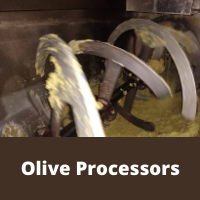The benefits provided by olives just keep on increasing. Research has revealed that olive extracts derived from the wastewater of olive oil processing act as natural meat preservatives, due to the high levels of antioxidants present.
The study was conducted by researchers from Food Science Australia and Argentina’s National Council for Scientific and Technical Investigation, and was published recently in the journal of Food Chemistry.
Lipid oxidation is a major issue for meat processors and retailers, as it negatively affect the taste, texture and colour of meat. It can be reduced by the addition of antioxidants, and traditionally synthetic antioxidants including butylhydroxyanisole (BHA) and butylhydroxytoluene (BHT) have most commonly been used to counter its effects. Increasing awareness of the effects of artificial food additives has brought about a demand for natural alternatives, however, leading to the development of various plant-derived antioxidants in more recent years.
The recent study involved the production of an olive extract high in the antioxidant polyphenols, isolated from the wastewater from olive oil pomace. The extract was added to pre-cooked beef and pork in various concentrations and the degree of resulting lipid (fat) oxidation in the meat was measured using the thiobarbituric acid-reactive substances (TBARS) test.
The results were impressive, with TBARS formation reduced by between 47 and 66% in pork treated with the olive extract, and by 63 to 83% in beef. The researchers concluded that: “The polyphenol extract from the wastewater of olive oil’s pomace significantly inhibited lipid oxidation in pre-cooked ground beef and pork.”
The researchers also compared the results to the effects of other naturally-derived antioxidants, with the olive extract rating higher than a grape skin derivative but less effective than one derived from green tea.


